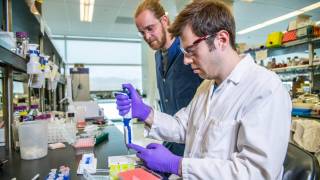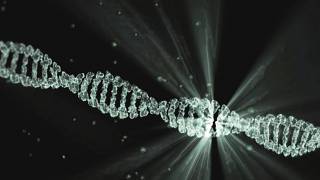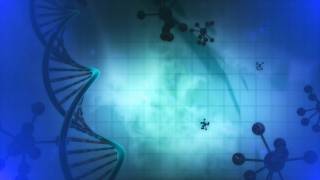Herpes Vaccines Need Help

A new study has raised concerns about the potential efficacy of live-attenuated Herpes Simplex 2 (HSV-2) vaccines.
This study’s findings show that the sizes and locations of interspecies recombination events in herpes simplex subtypes are significantly more variable than previously appreciated.
This means HSV-1 and HSV-2 subtypes may be ‘mixing’ together to result in several new, different recombinant versions of herpes.
Which, can impact species-specific T-cell recognition of HSV.
This conclusion may be one of the reasons why herpes vaccines have not yet been commercially approved.
“The main implication is that HSV-1 and HSV-2 are continuing to recombine,” said lead author Dr. Amanda Casto, a senior fellow in infectious diseases at the University of Washington School of Medicine.
“This could have important implications for HSV vaccine development, because it means a live HSV-2 vaccine could recombine with circulating HSV-1 strains, thereby forming an infectious virus.”
The list of HSV-2 vaccine candidates includes, but is not limited to:
- GEN-003 is an experimental immunotherapy vaccine comprised of 2 HSV-2 proteins, glycoprotein D2 and ICP4.2, and Matrix-M2 adjuvant. The last update was on February 19, 2019.
- VCL-HB01 is a therapeutic HSV plasmid DNA vaccine candidate formulated with Vaxfectin in HSV-2-seropositive. The last update was on February 27, 2019.
- In a 2018 study conducted at Louisiana State University examined the immune response generated by intramuscular injection of the VC2 vaccine in guinea pigs. The results suggest that intramuscular vaccination with the live-attenuated vaccine VC2 primes a mucosal immune response predisposing the adaptive expression of transcripts associated with a Th17 response to challenge and these responses contribute to antiviral immunity.
- In March 2017, BlueWillow, formally known as NanoBio, was awarded a Phase II grant to complete its remaining preclinical activities for its intranasal herpes vaccine candidate. BlueWillow’s nanoemulsion (NE) adjuvant demonstrated that an intranasal vaccine elicits protection in both the prophylactic & therapeutic guinea pig models for HSV-2. This represents the first vaccine to show efficacy in both herpes models.
HSV-1 and HSV-2 are two of the most common viruses affecting people. Moreover, humans are the only mammals that have two types of herpes simplex viruses.
Both viruses look alike clinically and are sensitive to the same drug, acyclovir. But they are genetically different.
HSV-1 most commonly affects the mouth, while HSV-2 usually causes genital lesions.
More than two-thirds of the world’s population is estimated to be infected with one or both viruses, according to the World Health Organization.
>>> Do you have the herpes virus? <<<
Both HSV-1 and HSV-2 cause incurable, lifelong infections.
“Herpes is one of the most stigmatized diseases out there, and yet it affects tens of millions of people,” said co-author Alex Greninger, assistant professor of laboratory medicine at the University of Washington School of Medicine and assistant director of the UW Medicine Clinical Virology Laboratory.
“We really need more work to combat this virus.” Dr. Casto explained that HSV-1 and HSV-2 diverged from one virus some 6 million years ago.
After HSV-2 jumped back into humans about 1.6 million years ago, humans were left with 2 types of herpes simplex viruses.
While there is evidence suggesting ancient recombination between HSV-1 and HSV-2, this study finds evidence for on-going recombination in humans today.
In an accompanying editorial, Dr. Scott Schmid of the Centers for Disease Control and Prevention, Division of Viral Diseases, said ‘this study greatly expands knowledge of these viruses.’
“These fascinating new insights into the dynamic interaction between 2 common human herpesvirus infections provide fresh concepts into how these complex viruses can maximize variation and thus continue their eons-old balance of power with their hosts,” wrote Dr. Scott.
The larger scale, more geographically encompassing studies proposed by the authors promise to greatly expand our current knowledge about the evolution and generation of diversity in these viruses.
Recent herpes vaccine news:
- Herpes Vaccine Candidates Need to ‘Wake Up CD8 T-Cells’
- Genital Herpes Risk Reportedly Reduced with Vaginal Gel
This work was supported by the National Institutes of Health, grant T32-AI007140. No conflicts of interest were disclosed.
Our Trust Standards: Medical Advisory Committee
- Large, Stable, Contemporary Interspecies Recombination Events in Circulating Human Herpes Simplex Viruses
- Mixing It Up: New Insights Into Interspecies Recombination Between Herpes Simplex Virus Type 1 and 2
- Line is blurring between human herpes simplex viruses
- Intramuscular vaccination of guinea pigs with the live-attenuated human herpes simplex vaccine VC2 stimulates a transcriptional

























